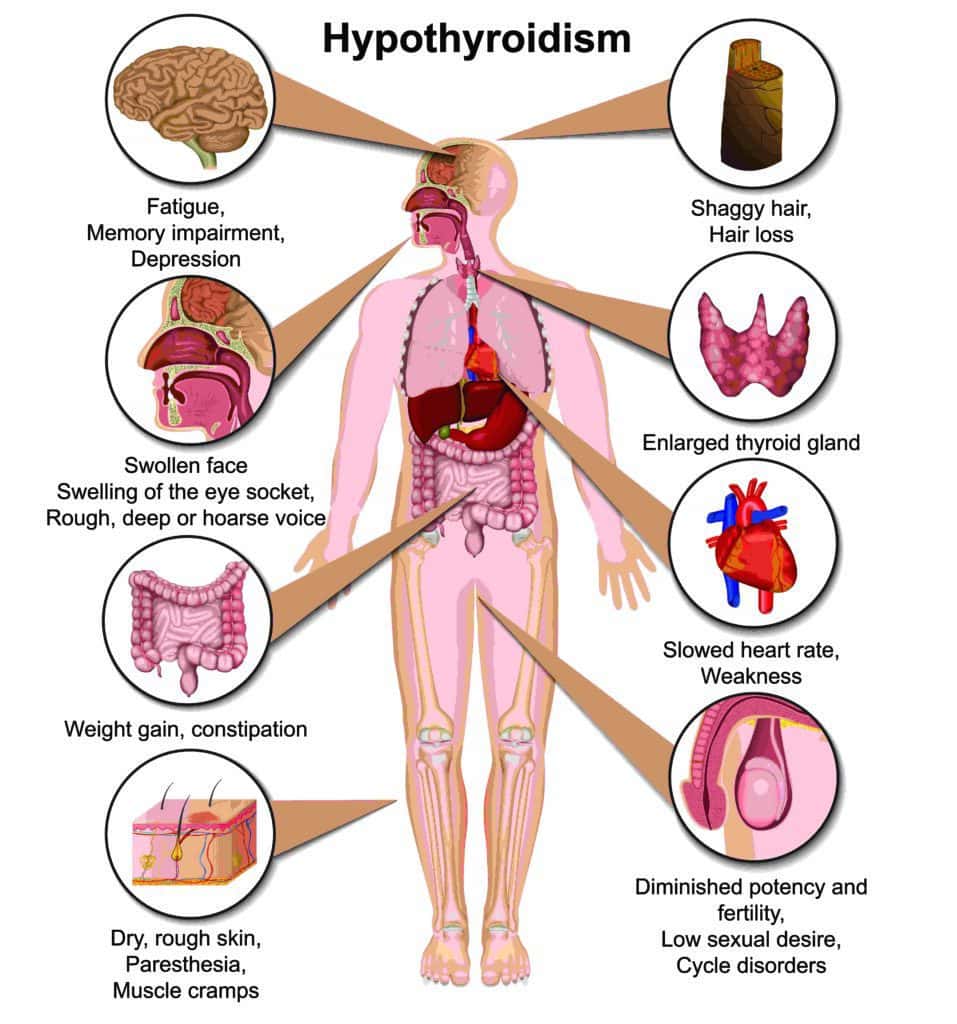The thyroid is a small gland located at the base of the neck. It is responsible for producing two important thyroid hormones. Triiodothyronine or T3 and thyroxine or T4 are hormones responsible for regulating one’s metabolism, which in turn regulates important functions such as the heart rate, blood pressure, and digestive function. They also support muscle and bone health.
When the thyroid gland (thyroid doctor) stops or is unable to produce the right amount of thyroid hormone, it results in an underactive thyroid. This condition is known as hypothyroidism. The thyroid hormones cannot enter the bloodstream, creating domino effects on the body.
As one’s metabolism slows down, it leads to several conditions, such as obesity, infertility, and heart disease. Extreme fatigue and inability to tolerate cold temperatures are early symptoms.
There are various types of hypothyroidism:

Unlike other conditions, hypothyroidism symptoms may take several years to manifest and recognize. They include the following:
Hypothyroidism symptoms in men include all of the above. On the other hand, Hypothyroidism symptoms in females include heavy menstrual flow, more frequent periods, and fertility issues.
Several factors can trigger hypothyroidism, but the major ones include the following:
Hypothyroidism diagnosis can be tricky, and your medical practitioner may test for other conditions first. Since the symptoms of hypothyroidism overlap with several other conditions, it is not easy to recognize them.
However, there is a hypothyroidism test that specifically diagnoses this condition. Your medical practitioner will recommend blood tests such as thyroid stimulating hormone (TSH) test, T3, T4, and thyroid antibody tests, which measure the thyroid hormone level.
Since low levels of thyroid hormone cause hypothyroidism, the treatment involves replacing the hormone deficit that the body is unable to create naturally. This is done through medication – a pill, which is a synthetic version of the thyroid hormone. It is to be orally taken every day.
Your medical practitioner may ask you to take it for three to six months, during which they will monitor your TSH levels. The medication will replenish the thyroid hormone and balance its levels in the body.
Sometimes, you may need to take medication for the rest of your life. However, the dosage may change as your health improves. Your doctor also may suggest lifestyle changes, such as upping your iodine intake, getting enough sleep, exercising, and reducing stress. They may suggest working with a nutritionist to craft a custom-made nutrition plan that will fuel your recovery, immunity, and strength.
It often takes patients a long time to recognize hypothyroidism symptoms. Medical practitioners may also be unable to diagnose it immediately, and there can be the scope of an inaccurate diagnosis. Hence, it is best to visit a seasoned practitioner who is savvy with various conditions related to hormone-producing glands, such as the thyroid. If not treated in a timely way, one’s health can deteriorate quickly into more serious life-altering conditions.
To avail of accurate and hassle-free diagnosis and treatment of hypothyroidism, you can visit the CK Birla Hospital or book an appointment with Dr online. Our healthcare professionals are equipped with state-of-the-art facilities and cutting-edge technologies to determine the root cause of various conditions and offer the right course of treatment.